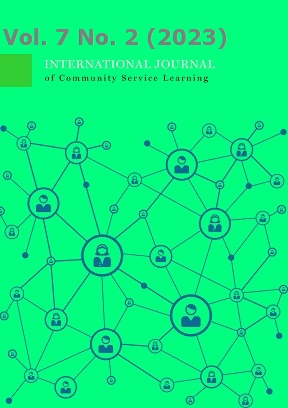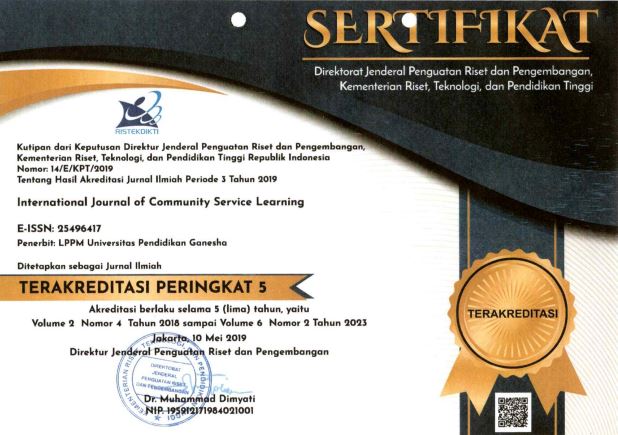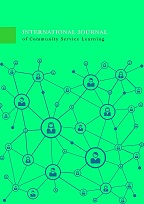Meningkatkan Keterampilan Public Speaking untuk Meningkatkan Kemampuan Komunikasi di Depan Umum
DOI:
https://doi.org/10.23887/ijcsl.v7i2.51633Keywords:
public speaking, komunikasi, soft skillAbstract
Pengabdian ini memberikan siswa kemampuan untuk bisa menyampaikan informasi dengan teknik dan cara komunikasi yang mudah dan bisa langsung diterapkan di depan kelas. Metode komunikasi yang mereka gunakan awalnya bersifat satu arah, namun dengan pengabdian ini membuat mereka mampu mengkomunikasikan pesan mereka dengan baik secara dua arah. Tujuan utama berkomunikasi adalah pesan dari pembicara (komunikator) sampai ke orang lain. Proses komunikasi ini memerlukan strategi yang tepat agar pesan dapat dengan mudah diterima oleh siapapun. Berbicara di depan publik (public speaking) adalah kemampuan yang sangat penting dari bagian komunikasi yang harus dipelajari oleh siapa saja khususnya pelajar, seiring mereka berproses melewati pendidikan hingga karir mereka nanti. Namun, seseorang seringkali menghindari kesempatan berbicara di depan umum karena mereka kurang memiliki kemampuan untuk menghadapi kecemasan yang muncul saat berbicara di depan umum. Fokus pengabdian di SMA Katolik Sang Timur ini adalah memberikan informasi, tips dan cara berbicara di depan umum dengan baik, serta memberikan cara yang mudah diterapkan kepada pelajar agar proses penyampaian pesan saat berbicara di depan umum bisa terlaksana dengan lancar.
References
Al-Sobhi, B. M. S., & Preece, A. S. (2018). Teaching English speaking skills to the Arab students in the Saudi school in Kuala Lumpur: Problems and solutions. International Journal of Education and Literacy Studies, 6(1), 1–11. https://doi.org/10.7575/aiac.ijels.v.6n.1p.1. DOI: https://doi.org/10.7575/aiac.ijels.v.6n.1p.1
Arsalan, A., & Majid, M. (2021). Human Stress Classification during Public Speaking Using Physiological Signals. Computers in Biology and Medicine, 133, 104377. https://doi.org/10.1016/j.compbiomed.2021.104377. DOI: https://doi.org/10.1016/j.compbiomed.2021.104377
Bartholomay, E. M., & Houlihan, D. D. (2016). Public Speaking Anxiety Scale: Preliminary psychometric data and scale validation. Personality and Individual Differences, 94, 211–215. https://doi.org/10.1016/j.paid.2016.01.026. DOI: https://doi.org/10.1016/j.paid.2016.01.026
Boromisza-Habashi, D., Hughes, J. M. F., & Malkowski, J. A. (2016). Public speaking as cultural ideal: Internationalizing the public speaking curriculum. Journal of International and Intercultural Communication, 9(1), 20–34. https://doi.org/10.1080/17513057.2016.1120847. DOI: https://doi.org/10.1080/17513057.2016.1120847
Burhanuddin, A. (2021). Improving Students’ Oral Communication Skills in Public Speaking through Individual Presentation Task. Jurnal Lingua Idea, 12(2), 159. https://doi.org/10.20884/1.jli.2021.12.2.4002 DOI: https://doi.org/10.20884/1.jli.2021.12.2.4002
Bylkova, S., Chubova, E., & Kudryashov, I. (2021). Public speaking as a tool for developing students’ communication and speech skills. E3S Web of Conferences, 273. https://doi.org/10.1051/e3sconf/202127311030. DOI: https://doi.org/10.1051/e3sconf/202127311030
Chollet, M., & Scherer, S. (2017). Assessing Public Speaking Ability from Thin Slices of Behavior. Proceedings - 12th IEEE International Conference on Automatic Face and Gesture Recognition, 310–316. https://doi.org/10.1109/FG.2017.45. DOI: https://doi.org/10.1109/FG.2017.45
Dolan, R. (2017). Effective presentation skills. FEMS Microbiology Letters, 364(24), 2017–2019. https://doi.org/10.1093/femsle/fnx235. DOI: https://doi.org/10.1093/femsle/fnx235
Fitrananda, C. A., Anisyahrini, R., & Iqbal, M. (2018). Pelatihan Public Speaking Untuk Menunjang Kemampuan Presentasi Bagi Siswa Sman 1 Margahayu Kabupaten Bandung. Jurnal Pengabdian Pada Masyarakat MADANI, 4(2), 66–69.
Gallego, A., McHugh, L., Villatte, M., & Lappalainen, R. (2020). Examining the relationship between public speaking anxiety, distress tolerance and psychological flexibility. Journal of Contextual Behavioral Science, 16, 128–133. https://doi.org/10.1016/j.jcbs.2020.04.003. DOI: https://doi.org/10.1016/j.jcbs.2020.04.003
Güvendir, E., Oya, O. N. A. T., & Dündar, S. (2020). The influence of counsellor trainee support on public speaking and foreign language speaking anxiety in the class setting. International Journal of Psychology and Educational Studies, 7(1), 11–26. https://doi.org/10.17220/ijpes.2020.01.002. DOI: https://doi.org/10.17220/ijpes.2020.01.002
Hale, A. J., Freed, J., Ricotta, D., Farris, G., & Smith, C. C. (2017). Twelve tips for effective body language for medical educators. Medical Teacher, 39(9), 914–919. https://doi.org/10.1080/0142159X.2017.1324140. DOI: https://doi.org/10.1080/0142159X.2017.1324140
Horiuchi, S., Nasser, J. S., & Chung, K. C. (2022). The Art of a Scientific Presentation: Tips from Steve Jobs. Plastic and Reconstructive Surgery, 149(3), 533–540. https://doi.org/10.1097/PRS.0000000000008849. DOI: https://doi.org/10.1097/PRS.0000000000008849
Jatmikowati, T. E. (2018). Efektifitas Komunikasi Orang Tua Terhadap Kepribadian Intrapersonal Anak. Pedagogi : Jurnal Anak Usia Dini Dan Pendidikan Anak Usia Dini, 4(2), 1. https://doi.org/10.30651/pedagogi.v4i2.1936. DOI: https://doi.org/10.30651/pedagogi.v4i2.1936
Kinasih, P. R., & Olivia, O. (2020). An Analysis of Using Movies to Enhance Students’ Public Speaking Skills in Online Class. Journal of Languages and Language Teaching, 10(3), 315–328. https://doi.org/10.33394/jollt.v10i3.5435. DOI: https://doi.org/10.33394/jollt.v10i3.5435
McNatt, D. B. (2019). Enhancing public speaking confidence, skills, and performance: An experiment of service-learning. International Journal of Management Education, 17(2), 276–285. https://doi.org/10.1016/j.ijme.2019.04.002. DOI: https://doi.org/10.1016/j.ijme.2019.04.002
Mowbray, R., & Perry, L. B. (2015). Improving lecture quality through training in public speaking. Innovations in Education and Teaching International, 52(2), 207–217. https://doi.org/10.1080/14703297.2013.849205. DOI: https://doi.org/10.1080/14703297.2013.849205
Novaković, N., & Teodosijević, B. (2017). Basics of public speaking. Bizinfo Blace, 8(2), 33–46. https://doi.org/10.5937/bizinfo1702033n. DOI: https://doi.org/10.5937/bizinfo1702033N
Raja, F. U. (2017). Anxiety Level in Students of Public Speaking: Causes and Remedies. Journal of Education and Educational Development, 4(1), 94. https://doi.org/10.22555/joeed.v4i1.1001. DOI: https://doi.org/10.22555/joeed.v4i1.1001
Siregar, S. U., Harahap, A., Milfayetti, S., & Haja, I. (2020). Peningkatan Kemampuan Komunikasi dan Self-Efficacy Matematis Siswa melalui Pendekatan Pembelajaran Matematika Realistik. Jurnal Penelitian Dan Pengkajian Ilmu Pendidikan: E-Saintika, 4(2), 151. https://doi.org/10.36312/e-saintika.v4i2.207. DOI: https://doi.org/10.36312/e-saintika.v4i2.207
Tee, X. T., Kamarulzaman, W., & Tan Joanna, T. A. (2020). A Systematic Review of Self-Coping Strategies Used by University Students to Cope with Public Speaking Anxiety. English Language Teaching, 13(10). https://doi.org/10.5539/elt.v13n10p57. DOI: https://doi.org/10.5539/elt.v13n10p57
Tsang, A. (2020). Enhancing learners’ awareness of oral presentation (delivery) skills in the context of self-regulated learning. Active Learning in Higher Education, 21(1), 39–50. https://doi.org/10.1177/1469787417731214. DOI: https://doi.org/10.1177/1469787417731214
Zhang, X., & Ardasheva, Y. (2019). Sources of college EFL learners’ self-efficacy in the English public speaking domain. English for Specific Purposes, 53, 47–59. https://doi.org/10.1016/j.esp.2018.09.004. DOI: https://doi.org/10.1016/j.esp.2018.09.004
Downloads
Published
How to Cite
Issue
Section
License
Copyright (c) 2023 Adi Prasetyo, Gulam Hazmin, Murniady Muchran, Ginanjar Setyo Nugorho

This work is licensed under a Creative Commons Attribution-ShareAlike 4.0 International License.

International Journal of Comunnity Service Learning is licensed under a Creative Commons Attribution-ShareAlike 4.0 International License.













